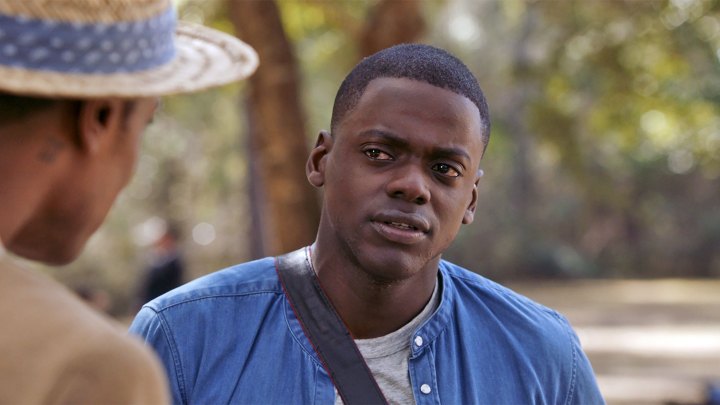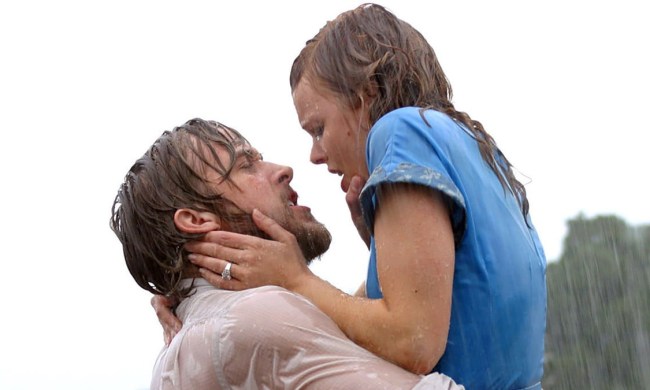Whether it’s accidental or intentional, sometimes a movie arrives in theaters at just the right time.
Such is the case for writer-director Jordan Peele’s thriller Get Out, the story of a black man who discovers all is not what it seems at his white girlfriend’s family estate, which hits theaters at a point when racism, xenophobia, and fear of anyone different are shaping our social and political climate in terrifying ways. It’s an environment that has audiences primed to connect with the film’s clever (and exceptionally scary) themes, and connect it does – with shocking, and occasionally, uncomfortably real results.
The directorial debut of the Key & Peele co-creator, Get Out casts Daniel Kaluuya (Skins, Black Mirror) as a young, black man who agrees to accompany his girlfriend, Rose (played by Girls actress Allison Williams), on a visit to her family’s sprawling home. The more time he spends around Rose and her family, however, the more clues pile up that suggest something is very, very wrong with everyone there – particularly the other non-white people he encounters.
A tense tale from its opening moments to its brutal third act, Get Out is so expertly paced and delivers its frights at just the right frequency (and degree of scariness) that it’s easy to forget that Peele is a first-time filmmaker. To his credit, Peele also manages to avoid doing what’s expected at nearly every turn in the plot, even going so far as to occasionally tease his audience with a potential trope, only to take things somewhere else entirely at critical moments.
The timing couldn’t be more appropriate for the film to arrive in theaters.
Given how predictable the horror genre can be, Peele does a surprisingly good job of avoiding the easy scares – something that speaks volumes to his awareness of the genre and its potential beyond what’s been done time and time before.
As the film’s lead, Kaluuya walks a fine balance between being more aware and perceptive of what’s going on around him than the typical horror movie protagonist while still retaining that precious degree of naivety that makes the twists that much more unnerving when they do happen. When the lights finally do come on – figuratively – for Kaluuya’s character, he handles the transition from victim to determined survivor in believable fashion, coming off with a mix of reluctance and visceral desperation that works well with how he’s played the character up to that point.
Of the supporting cast, the always reliable Catherine Keener (Being John Malkovich, Capote) offers a nice reminder why she’s a two-time Oscar nominee with a performance as Rose’s hypnotherapist mother that shifts from warm to ice-cold sinister in subtle increments. As Rose’s father, Emmy winner Bradley Whitford (The West Wing, The Good Guys) maintains a constant state of awkward creepiness that wavers between being funny and dangerously loony at various points, to great effect.

Williams herself turns in a performance that, although it isn’t matched by Keener and Whitford, also manages to squeeze a lot out of a character that’s somewhat limited for much of the film.
In much the same way It Follows tapped into the awkward fear lurking below the surface of sex and young adulthood, Get Out mines its scares from generations’ worth of simmering racism and bigotry. And with so much of that hatred bubbling to the surface in recent months, the timing couldn’t be more appropriate for the film to arrive in theaters. Its themes resonate in ways that make the scares just a little more frightening, and its horrifying narrative a little more real than it might have seemed a year ago.
Hopefully, Peele is just getting started.







